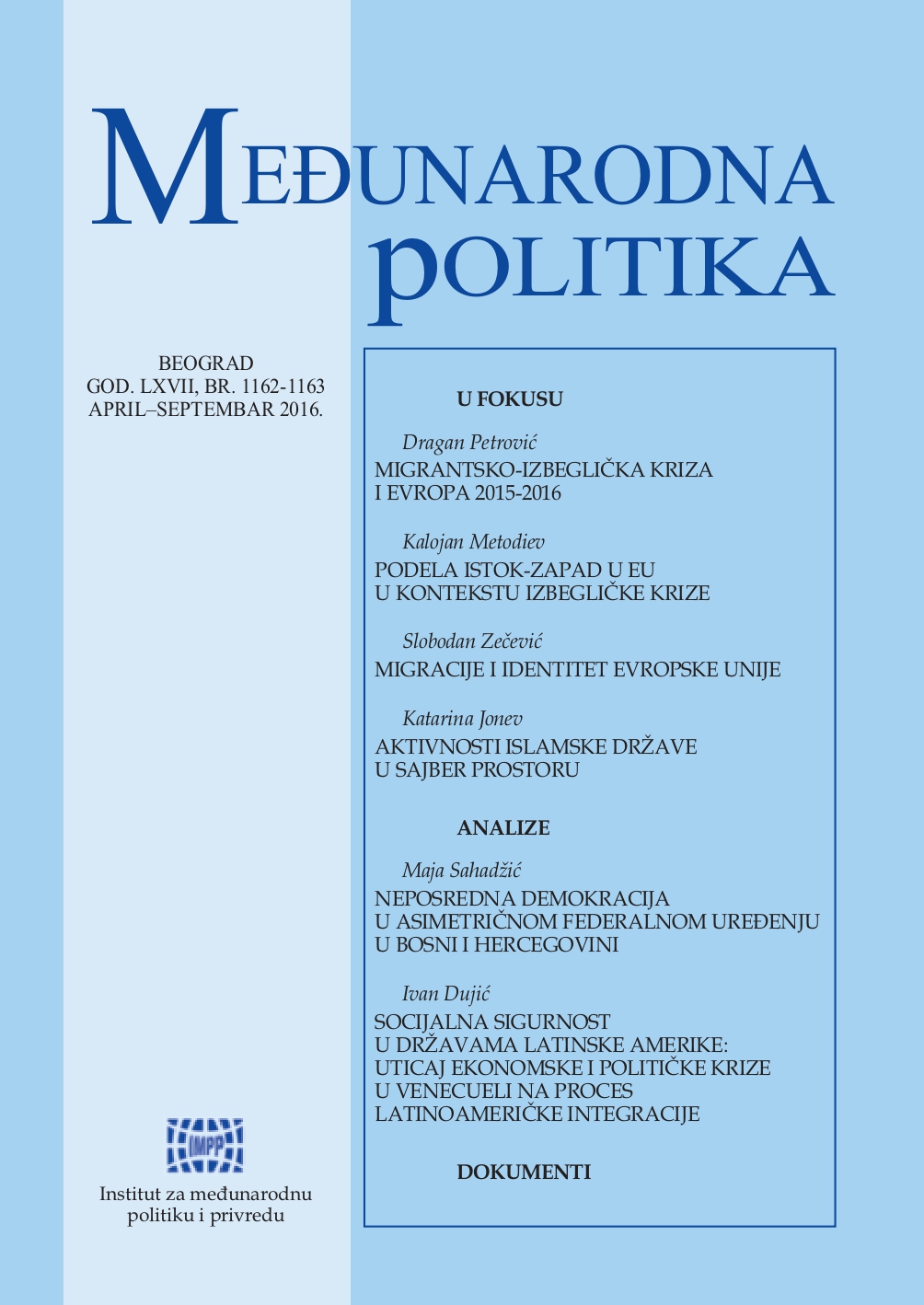Uticaj procesa evropeizacije na usvajanje građanskog (nadnacionalnog) identiteta u Republici Makedoniji
Impact of europeanization on the adoption of civil (supranational) identity in the Republic of Macedonia
Author(s): Mitko ArnaudovSubject(s): Inter-Ethnic Relations
Published by: Институт за међународну политику и привреду
Keywords: The State of Macedonia; Albanians; Macedonians; citizenship; Euro-Atlantic integration; Ohrid Agreement
Summary/Abstract: Ethnic issues in the region of the former Yugoslavia, in the last 25 years represent a kind of reversible generator. Creating new states on the territory of the former Yugoslav federation was accompanied by a parallel process of revival of large nationalist ideas. While political elites were talking about adoption of the modern democratic heritages and launching a process of accelerated European and Euro-Atlantic integration, their de facto actions have set off in the opposite direction, respectively, towards establishing the foundations for mono-ethnic states. In multiethnic societies, such actions have directly influenced the emergence of the phenomenon of intolerance in relation to another, different, which ultimately led to the open conflicts on ethnic, national and religious postulates. The Macedonian political elite in the early nineties, called for the establishment of a modern Macedonian state on civil grounds, but the spirit of national "superiority" has also appeared in the Macedonian multiethnic society. Denying Macedonian identity by the neighboring states, and pressure of the numerically dominant ethnic Albanian minority in the country, have influenced the changes in the course of civil perspective and its replacement by the new, the extremely nationalist ideas. Such a course of events, supported by the pervasive corruption within the Macedonian political elite, has contributed to the disagreements between Macedonians and Albanians, and also to the isolated conflict actions during 2001 that were on the verge of starting a civil war. The signing of the Ohrid Agreement represents a guarantee in the process of preserving and maintaining the Macedonian multiethnic mosaic. This agreement supposed to be an essential basis during the construction of a civil and multiethnic Macedonian state. From today's perspective, it looks more like an instrument in the hands of the Macedonian-Albanianpolitical elite. Although its implementation is one of the most important 89 conditions on the Euro-Atlantic path of the Macedonian state, politicians from the Macedonian and Albanian elite know how to ignore this fact, and to use this agreement to satisfy narrow party interests.
Journal: Међународнa пoлитика
- Issue Year: 67/2016
- Issue No: 1164
- Page Range: 72-90
- Page Count: 19
- Language: Serbian

